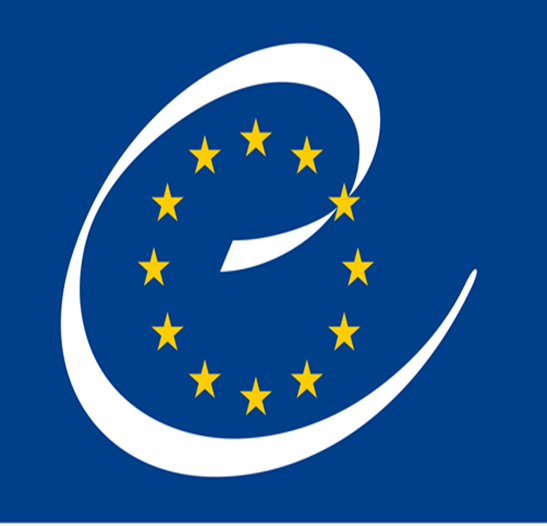Reforming Criminal Laws on Deepfakes and Image-based Sexual Abuse
Primary participants
Professor Clare McGlynn, Professor of Law
'Every victory in the fight against image-based abuse in the UK can be traced back to Clare McGlynn, Professor of law at Durham University.' Lucy Morgan, editor of Glamour Magazine.
‘At one point in the discussions there was some suggestion that no crime was committed until the created images were known about, shared or seen. Professor McGlynn makes the case that image creation without consent—non-consensual being the crime—is a significant cause of the harm done by this appalling behaviour. I will read [from her evidence which] is so overwhelmingly persuasive.’ Lord Browne of Ladyton, House of Lords debate on criminalising deepfake sexual abuse.
‘The sending of unsolicited pictures of genitals was raised as an issue by Professor Clare McGlynn, who advocated for the creation of a new offence to criminalise this behaviour in her written submission. The Committee explored this further in an oral evidence session with Professor McGlynn and found her testimony compelling.’ The Committee for Justice Report on the Justice (Sexual Offences and Trafficking Victims) Bill.
Impact at a glance
- Clare’s research in collaboration with Professor Erika Rackley reconceptualised ‘revenge porn’ as ‘image based sexual abuse’, shifting focus from the motives of perpetrators to the harms experienced by victims. This term is now used across the world to better explain the nature and extent of these abuses.
- Clare’s research formed the foundation for new laws across the UK better protecting women and girls by focusing on the core issue of non-consent. Her work also ensured this abuse is understood as a sexual offence.
- Clare’s research has inspired criminal law reforms around the world, including in Iceland, Australia and the European Union. She has worked with politicians and policy-makers in New Zealand, Singapore, and Korea to strengthen legal protections.
- Following Clare’s research and advocacy, cyberflashing – the sending of unsolicited dick pics – is also now a criminal offence. Clare worked with survivors, the US dating app Bumble, and politicians to challenge the minimisation of this abuse and to introduce criminal protections.
- Most recently, Clare’s research, advocacy and policy work has directly contributed to new legislation in the UK that criminalises the creation and solicitation of sexually explicit deepfakes. She helped to draft legislation to strengthen Government proposals, ensuring that the new law is based on consent, includes when others ask someone else to make a sexually explicit deepfake and strengthens prosecutions.
Key Publications
- Read Clare’s account of her research into the gaps in law regarding image-based abuse and the reforms her work has been seeking to change, as well as the article she wrote on the importance of criminalizing the creation of deepfake porn, which has been read over 100,000 times and helped shape new legislation.
- Read how Clare’s research and expert legal guidance directly feeds into government recommendations for legislative change on image-based abuse.
- Read Clare and Rüya Tuna Toparlak’s journal article on criminalizing deepfake pornography, as well as their expert guidance for parliament, which provided evidence leading to legal reform.

What was the problem?
- Having an intimate image taken, made and/ or shared without consent can be truly life shattering, yet legal protections against these abuses have largely been absent or not fit for purpose. Image based sexual abuse is an umbrella term used to describe all forms of taking, sharing, soliciting or creating intimate images without consent. It includes problematic terms such as 'revenge porn', as well as upskirting, downblousing, deepfake sexual abuse and collector culture.
- Despite the extremely high prevalence of image based sexual abuse and the devastating impact it can have on people’s lives, legislative measures have historically both failed to prevent image based abuse or serve justice for those affected. Clare’s research seeks to address and challenge the legal system and its current response to image based sexual abuse, so consistent and effective legal protections can be put in place for victim/survivors.
News reporting on the issue
By Lucy Morgan
By Elizabeth Short
By Monika Plaha and Panorama Team

How did these changes come about?
Gave oral evidence to parliamentary committees in the UK and Internationally, which contributed towards legislative changes:
- In Northern Ireland, Clare’s evidence helped secure legal reform, and the introduction of legal protections against downblowsing (taking intimate images of a woman’s breasts or underwear without her consent). Clare urged the Assembly to blaze a trail and introduce the strongest, victim-centred laws across the UK. The Justice Committee described Clare’s evidence as ‘compelling’ and recommended changes to the upskirting law and that there should also be a cyberflashing offence.
- in 2021 Clare gave oral evidence to the New Zealand Parliament’s Justice Committee regarding their proposals to strengthen laws on intimate image abuse, helping shape legislative changes.
- In the Australian review of laws on sexually explicit deepfakes, Clare’s research and evidence submission formed the basis for a recommendation from the Senate Inquiry to the states to review their laws on criminalising creation of sexually explicit deepfakes.
Extensive media engagement and activism:
- Clare has been invited to share her research and expert opinion on image-based abuse across a wide range of media and charitable organisations and is widely consulted as a leading expert on this issue.
- Clare has been interviewed a number of times on flagship news programmes such as BBC Radio 4’s Today, as well as appearing on BBC Breakfast TV, Sky News and Channel 4 News. Clare also provided expert legal guidance for BBC Scotland's documentary investigation into the rising threat of deepfake pornography. Clare’s website also documents many further examples of her work with the media on deepfakes and image-based abuse.
- Clare has also been interviewed for documentaries on deepfakes for national TV in Austria and Germany, as well as speaking about the threat that deepfake abuse poses to democracy. The Austrian documentary Fake Porn, Real Victims is in English here.
Provided advice and guidance to the European Union:
- Clare engaged with the European Commission, European Women’s Lobby, Microsoft, HateAid and other stakeholders working to strengthen European responses to image-based abuse. Her research examines the new EU directive, which criminalises some forms of deepfake abuse, highlighting the gaps.
- This follows Clare’s work with Carlotta Rigotti where they examined the draft proposals and produced a policy briefing on the non-Consensual Sharing of Intimate or Manipulated Material, which helped anti-violence organisations and MEPs to lobby for change to the draft.

Image: Filming documentary on deepfake sexual abuse with German national broadcaster ZDF.

What has happened since?
- Clare’s research and advocacy along with colleagues across a diverse range of sectors, including the media, specialist organisations for women and girls, academics and representatives from UK Parliament and the House of Lords, has led to changes in the law relating to image based abuse, both in the UK and internationally. After extensive campaigning and advocacy about the harms of image-based abuse, the UK Government has shifted its position, agreeing to adopt a comprehensive and consent-based law that criminalises the creation and solicitation of sexually explicit deepfakes. Initially, the Government had proposed a far narrower offence that would have required proof of specific motives, but following strong pressure and expert advocacy. Culminating in a pivotal debate in the House of Lords led by Baroness Owen, using material prepared by Clare, the law now offers robust protections against deepfake sexual abuse.
- Clare and colleagues also secured changes to broaden the definition of intimate image and extend the time limits for bringing prosecutions. She worked closely with Baroness Owen on the development of these changes and helped draft the proposed amendments to the law. She also prepared a briefing on the human rights context which helped persuade the Government to change its approach. Clare’s research has called for consent-based image-based abuse laws for many years and it is very welcome to see these changes becoming law.
- During the Parliamentary debate in the House of Lords on the amendments, Clare’s research and briefings on image based abuse were described as “overwhelmingly persuasive”.

What next?
- Clare has been appointed as a member of the Council of Europe’s Committee of Experts on Tech-Facilitated Violence against Women and Girls and is currently working with the committee to prepare a new Recommendation that will guide the actions of all 47 member states. This builds on Clare’s human rights expertise including the first Thematic Paper on the Digital Dimension of Violence Against Women which she prepared together with Dr Carlotta Rigotti and the Council of Europe for EDVAW, the human rights organisation that brings together the UN Special Rapporteur on VAW, the Committee to end discrimination against women (CEDAW) and other international human rights monitoring bodies. The Thematic Paper forms the foundation for future monitoring of how states are implementing human rights in the online context.
- In 2025, the Women and Equalities Committee of the UK parliament published its recommendations into the urgent need to transform our response to image based sexual abuse. Many of Clare’s recommendations are included in that report including introducing a new comprehensive civil law regime to empower victims to get images removed or deleted online. The next stage is to keep working with politicians to get such changes introduced.
- Clare’s research also focuses on the development of immersive, virtual technologies and the metaverse. She has coined the term ‘meta rape’ to better explain the nature and harms of sexual violence and abuse in the metaverse. Clare and Carlotta Rigotti have also written a research briefing on meta-rape, which outlines their research and recommendations regarding the legal regulation of sexual violence and harassment in the metaverse.
- Clare will continue her advocacy and activism work to continue to develop and strengthen legislation worldwide on image-based abuse and deepfakes.

Image: Presenting on the urgent threat of deepfake sexual abuse at the inter-governmental AI Action Summit held in Paris and the need to strengthen criminal law and demand greater accountability from tech companies.

Videos
Talk by Professor Clare McGlynn Deepfakes, Cyberflashing and Law Reform 4 June 2024

Find out more
Clare's Website
Visit Clare’s website for more details about her research and the impact it is having.
The Council of Europe's Website
Visit the Council of Europe’s website for details of their expert panel on addressing technology facilitated violence against women and girls, where Clare is a representative for the United Kingdom.
Policy Briefing
Read the policy briefing on the prevention of image based abuse prepared by Clare and others as part of their current campaign for a comprehensive image based abuse law.
Glamour Magazine
Keep up to date with Clare’s collaborative campaign with Glamour Magazine to end image-based abuse on Instagram.


/prod01/prodbucket01/media/durham-university/departments-/law-school/37038.jpg)
/prod01/prodbucket01/media/durham-university/departments-/law-school/Picture1.png)
/prod01/prodbucket01/media/durham-university/departments-/law-school/Glamour.jpg)
/prod01/prodbucket01/media/durham-university/departments-/law-school/Screenshot-2025-06-26-093934.png)
/prod01/prodbucket01/media/durham-university/departments-/law-school/BBC.jpg)


/prod01/prodbucket01/media/durham-university/departments-/law-school/Clares-Website.png)
/prod01/prodbucket01/media/durham-university/departments-/law-school/Council_of_Europe_logo_-2.png)


/prod01/prodbucket01/media/durham-university/departments-/law-school/Stop-Image-Based-Abuse-Banner.png)
/prod01/prodbucket01/media/durham-university/departments-/law-school/Glamour.jpg)

